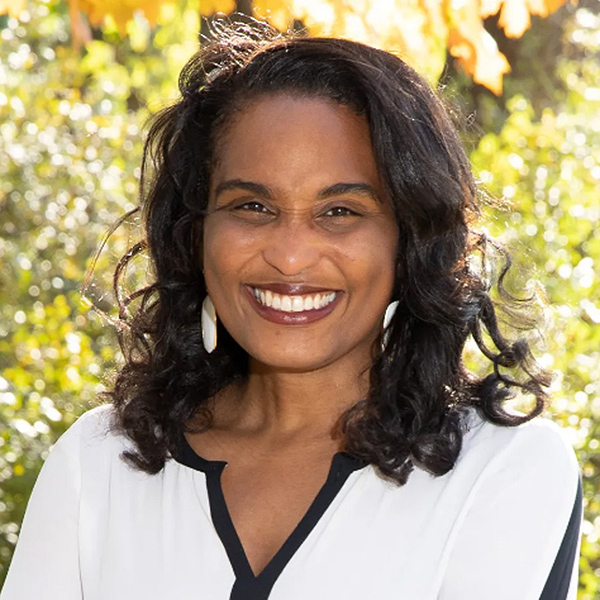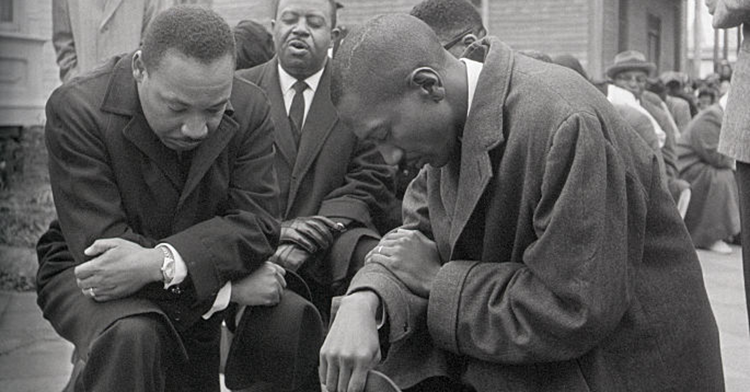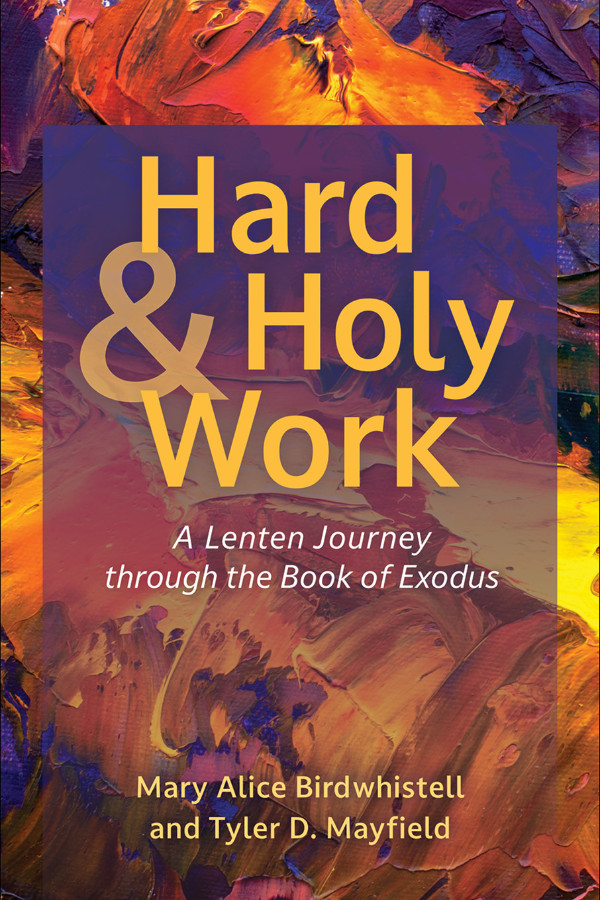Paulus Widjaja is a Mennonite of Chinese descent who grew up in Indonesia, which has the largest population of Muslims in the world.
As both a Christian and a Chinese minority in his home country, Widjaja said he experienced discrimination on two fronts as a child. Those experiences included being robbed and beaten up on his walks home from school and seeing his church attacked and destroyed by Muslims after a Christmas worship service.
 From those encounters, Widjaja said, he often asked himself, “Why do people act that way? … Why are people fighting against each other? What is the problem?”
From those encounters, Widjaja said, he often asked himself, “Why do people act that way? … Why are people fighting against each other? What is the problem?”
Those questions led him to earn a master’s degree in peace studies from the Associated Mennonite Biblical Seminary in Elkhart, Ind., and a Ph.D. in theological ethics from Fuller Theological Seminary.
Today, he’s focused on helping people overcome the problem -- the root of which is seeing people of other faiths as enemies, said Widjaja, a professor of theology at Duta Wacana Christianity University in Yogyakarta, Indonesia. As the director of the university’s Center for the Study and Promotion of Peace, he oversees training in mediation and conflict transformation for government officials and leaders of religious and nongovernmental organizations throughout the Asia-Pacific.
Widjaja is also co-author of “A Culture of Peace: God’s Vision for the Church” and has been the peace council secretary of the Mennonite World Conference since 1993.
He was at Duke University this summer to co-teach a seminar on Muslim-Christian reconciliation at the Center for Reconciliation’s Summer Institute. He spoke with Faith & Leadership about reconciliation and the role of leaders in cultivating “pro-existence.” The following is an edited transcript.
Q: How did you come to study theological ethics and be interested in peace studies?
I have a Chinese background, and I grew up in a situation in which there was discrimination in Indonesia against Chinese people. My childhood was not good in that sense, because often when I went to and from school, I was stopped on the street, asked for money by my indigenous neighbors, and beaten up. I was so afraid to ride back home on that road, I had to make a detour just to avoid that little road.
I remember in 1979 as we were celebrating Christmas, right after a worship service there were hundreds of Muslims suddenly coming into our church. They destroyed everything.
Those kinds of stories are in my heart. I kept questioning, “Why do people act that way? Why are we in enmity and hostility? What is the problem that is between Chinese and indigenous people and between Christians and Muslims? Why are people fighting against each other? What is the problem?”
Many times we are afraid of other people, and we see people of other faiths as our enemies and as a threat -- that is the problem that we have to overcome.
Q: How is that problem overcome?
I like to use the term “pro-existence.” That is the ideal where both communities, Muslim and Christian, have to go to. It is not just a peaceful coexistence, like “As long as I do not bother you and you do not bother me, it’s fine. We go our own directions.” It’s not like that.
It’s “How can Christians and Muslims support each other?” The existence of one cannot be sustained without the other’s existence. That is what I call pro-existence, and that is the kind of reconciliation that I’m longing for -- that Christians and Muslims can understand that we simply cannot exist without the other.
Q: How does pro-existence come to be?
The only way to win your enemies is to be friends with them. When we make people our enemies, then we will never overcome the enmity. So it is the enmity that we have to destroy. That is what Jesus began, deconstructing the enmity. But Jesus never eliminates any enemy. It is the enmity that we have to fight against, not the enemies.
And the way to overcome that enmity is to make friends. It is a simple step. That’s why when Jesus was asked, “What is the greatest law?” Jesus said, “Well, love is the greatest law.”
We are still sinful human beings. But that is when I talk about vulnerability. Vulnerability may bring joy to me or it may bring sorrow; I don’t know. But I will vulnerably open myself up to you. That is the kind of virtue that we need to cultivate, and that is where we can love other people genuinely and not demand, “I will love you only if ...” That is a love that is having a condition. That is not the kind of love that Jesus teaches us. It should be an unconditional love.
This is where vulnerability comes in. You have to cross the border, because you cannot simply live in your own comfort zone or your own enclave. But I cannot guarantee that when you get out and cross the border that you will be fine; I cannot guarantee that, because there are many kinds of people out there, and there is no guarantee that the end result of our relationship will be a good one. But we need to cultivate the virtue of vulnerability -- to open up our arms and embrace other people.
When we talk about dialogue, we can talk about it as a conversation, but it’s also a dialogue of life, in which we exchange our life. In my own life, I go to the Muslim community and I invite them to come to my community. That kind of exchange of life will be very, very fruitful for reconciliation.
Q: What role should Christian leaders play in cultivating this form of reconciliation?
The church and Christian leaders have to intentionally create or shape the character of individual Christians to embrace and make friends with people of other faiths and to overcome their fear.
The structure itself is also important. Good people do not just happen. You need intentional structure to shape those kinds of individuals.
For example, I like to ask the Sunday school teachers, “What kind of stories are we teaching our children? For example, if we are talking about power, what kind of story are we talking about?” On many, many occasions, the Sunday school teacher will say it’s a story about David and Goliath. Well, it is true there is a story about David and Goliath in the Bible. But if this is the only story that we tell the children, then we actually nurture a spirit of arrogance: “It’s fine if we are little and if we do not have big power. As long as God is with us, then nobody can defeat us. Then we can be the winner.” It is very dangerous.
I ask the Sunday school teachers, “Why not tell a story of friendship between David and Jonathan? That is also a story of friendship -- of two people from two different social backgrounds, and yet they make such a good friendship. Why not tell the children that story? Why always David and Goliath?”
We have to be very, very critical of the kind of stories that we are talking about. We need to pay attention to what kind of structure, what kind of teaching, what kind of catechism, what kind of liturgy we use, what kind of songs that we sing in the church.
I like to encourage my young people to be especially critical of the songs that we sing in the church, because songs, for me, are more powerful than sermons. When a housewife is washing dishes, for example, she will not recite the sermon that she hears in the church, right? But she will sing. And when you’re driving, most Christians do not intentionally listen to sermons; they listen to songs. So the songs are very, very powerful in shaping our character. Therefore, we need to pay attention to what kind of songs and lyrics shape our character and our theology.
Q: What songs do you think serve as a model for cultivating an environment and a mindset of pro-existence?
There is one song that I love so much. The lyrics were created by Menno Simons, and it’s called “True Evangelical Faith.” In that song, he says that the true evangelical faith is when we give food to the people who are hungry, give clothes to those who are naked, and give shelter to those who do not have shelter. And I think this is the kind of song that we need to sing -- to keep reminding us that we not only need to think about heaven, but we need to think about our life on this earth. If we go to heaven, fine. But remember that before we go to heaven, we live on the earth first, and we need [to fulfill] our responsibility while we are living on this earth.
My criticism of the kind of songs that we like to sing in the church is that, for me, they make us too selfish. There are a lot of “I” words in our songs, but very little of “we” or “they” and even “it.” How about the creation? We never sing about our creation and about our responsibility to take care of this creation that God has given to us. That’s just the kind of songs that I think that we need to create.
I always challenge Christian artists everywhere to create songs that remind us of how we are to embrace other people and not to see other people as enemies but to love them and to embrace them just as Jesus did.
Q: How did you come to a place of embracing others after your experiences as a child?
It was a long process, I admit. Until I finished high school, I did not have any indigenous and Muslim friends. All my friends were from Chinese-descent people and Christians, because I was afraid. I was having this trauma.
The turning point happened when I graduated from high school and I moved out of the city and went to seminary.
There, I found indigenous people who became best friends of mine until now. That is when my mind was opened that I cannot make any generalization about the indigenous people, because there are good indigenous people. Then I got acquainted with the Muslims, and I also found there are many good Muslims.
Of course, this was a struggle, but I had to make a commitment to overcome that problem. And by God’s grace, I believe that I have overcome that problem.






